When it comes to eating healthy, one diet that has gained immense popularity is the Mediterranean Diet. This dietary pattern is not just a diet; it’s a way of living a healthy lifestyle. The Mediterranean Diet Pyramid is a visual representation of this eating plan and emphasizes the importance of consuming specific food groups and maintaining a balanced intake.
Mediterranean Diet Pyramid: A Visual Guide to Healthy Living
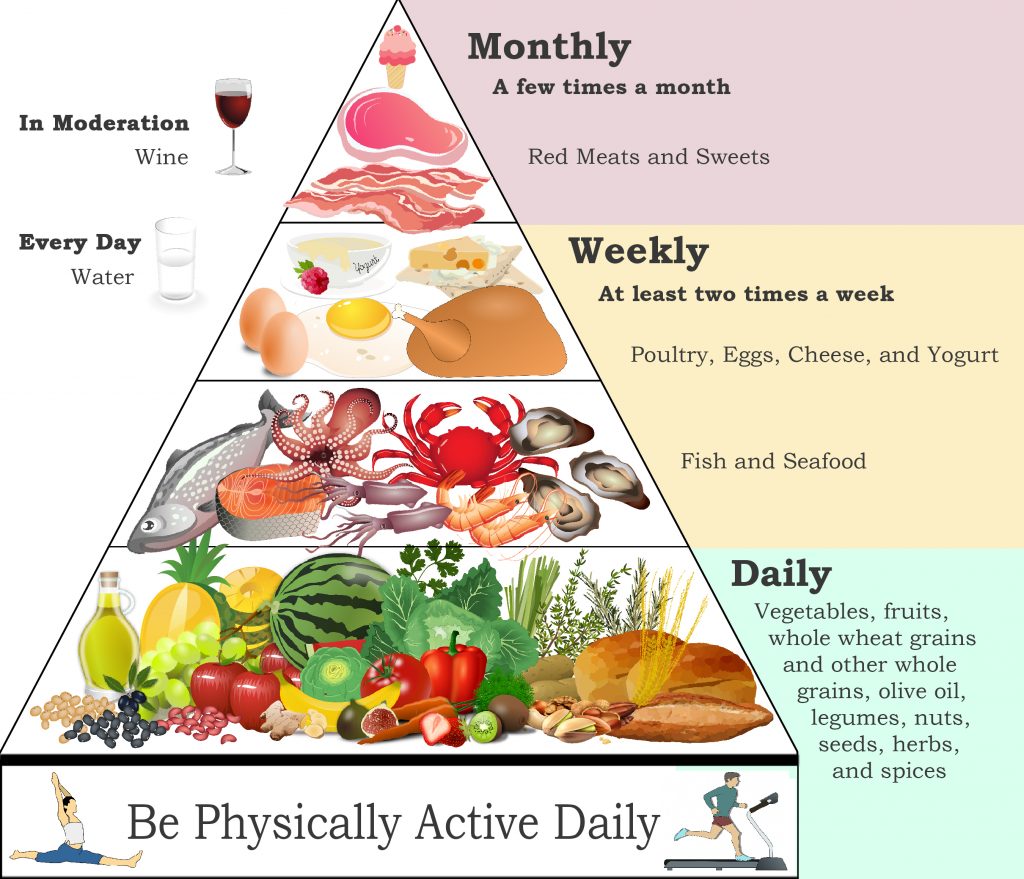
The Mediterranean Diet Pyramid showcases the recommended daily servings of various food groups. At the base of the pyramid are whole grains, which should form the foundation of your meals. These include foods like whole wheat bread, brown rice, and oats. Whole grains are a great source of fiber and provide long-lasting energy.
Next on the pyramid are fruits and vegetables. The Mediterranean diet encourages consuming a variety of colorful fruits and vegetables, as they are high in vitamins, minerals, and antioxidants. They also add flavor and texture to your meals. Aim for at least five servings of fruits and vegetables each day.
One of the distinguishing features of the Mediterranean diet is the emphasis on consuming healthy fats. Olive oil, nuts, and seeds are excellent sources of monounsaturated and polyunsaturated fats that can help reduce the risk of heart disease. These healthy fats are represented in the pyramid just above fruits and vegetables.
Enjoying Lean Proteins and Dairy
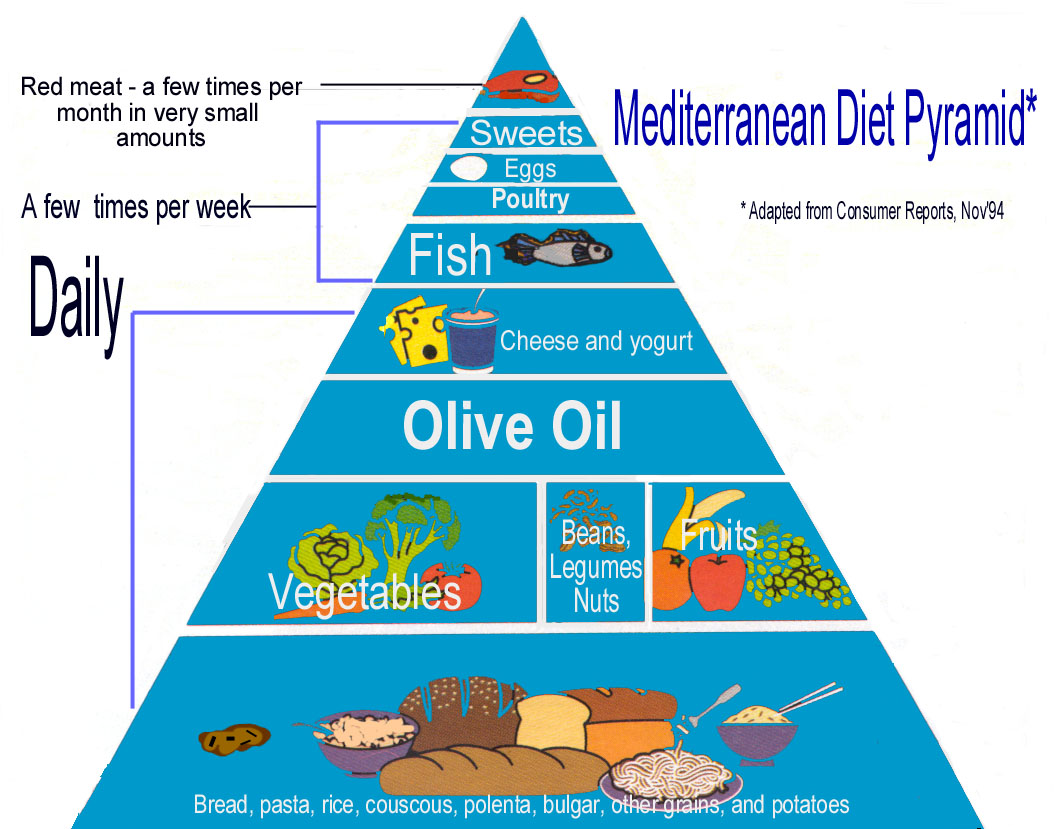
Moderate amounts of lean proteins, such as fish, poultry, eggs, and legumes, are recommended in the Mediterranean diet. These proteins provide necessary nutrients while being relatively lower in saturated fat compared to red meat. Including them in your diet ensures that you are getting the adequate amount of protein to support your body’s needs.
Dairy products, like yogurt and cheese, are also included in the Mediterranean diet in moderation. They are good sources of calcium and other essential nutrients. It’s important to choose low-fat or skim options to keep the intake of saturated fats in check.
Navigating Snacks and Sweets

Snacks and sweets, while not the focus of the Mediterranean diet, are not entirely off-limits. The diet emphasizes portion control and choosing healthier options. Nuts, seeds, and dried fruits make excellent snacks, providing a good mix of healthy fats, proteins, and fiber.
When it comes to sweets, the Mediterranean diet encourages indulging in small portions of desserts made with healthier ingredients like fruits, nuts, and dark chocolate rather than processed or sugary treats. Moderation is the key.
The Timeless Appeal of the Mediterranean Diet Pyramid
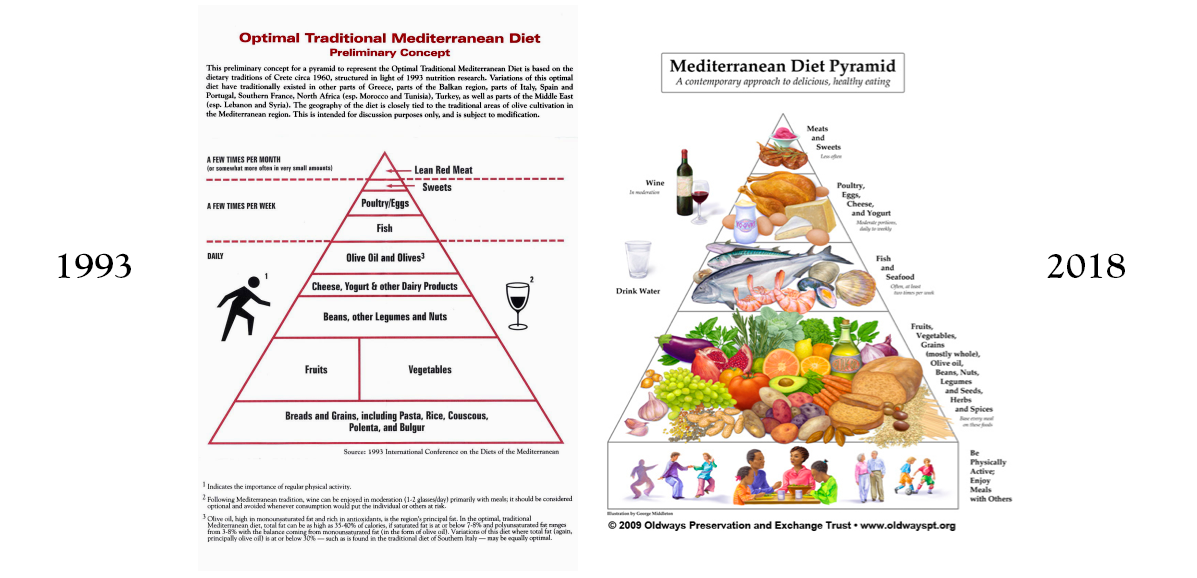
For over 25 years, the Mediterranean Diet Pyramid has been a beloved and trusted guide to healthy eating. It has stood the test of time and continues to promote good health and well-being.
A notable aspect of the Mediterranean diet is the importance it places on regular physical activity, such as walking, gardening, and playing sports. Active living is an integral part of the Mediterranean lifestyle and contributes to overall health and vitality.

The Mediterranean diet is not only suitable for individuals but also offers several benefits during pregnancy. It provides essential nutrients for both the mother and the growing baby, such as folate, iron, and omega-3 fatty acids. It also supports healthy weight management and reduces the risk of gestational diabetes and other complications.
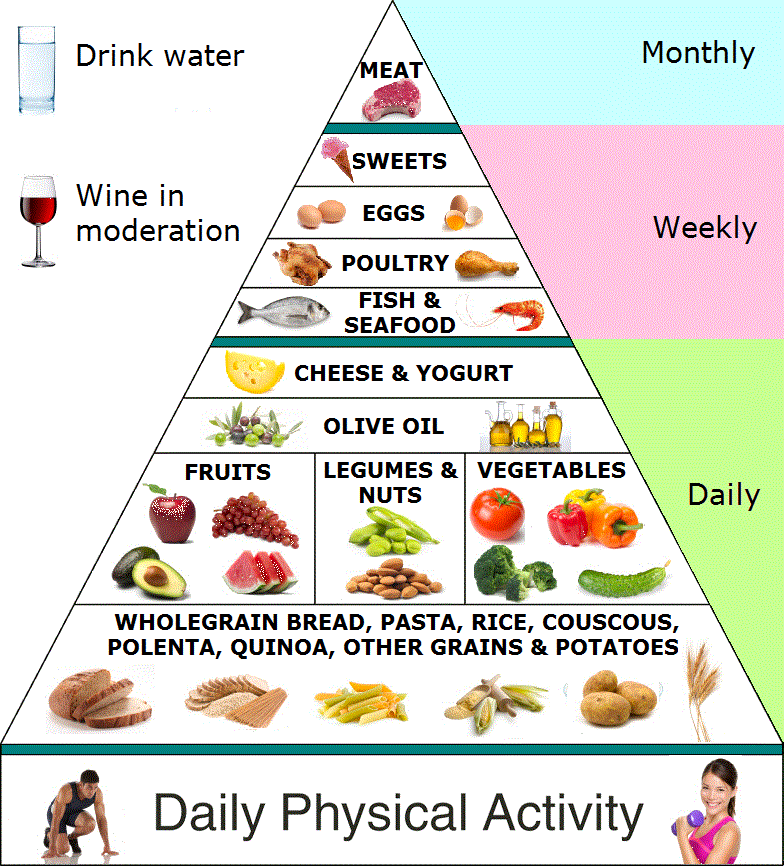
When following the Mediterranean diet, there is a wide range of delicious food choices available. Fresh fruits, vegetables, whole grains, legumes, lean proteins, and healthy fats create a diverse and flavorful meal plan. Herbs and spices like garlic, basil, and oregano are frequently used to enhance the taste of dishes instead of relying on excessive salt.
Understanding the Mediterranean Diet Pyramid
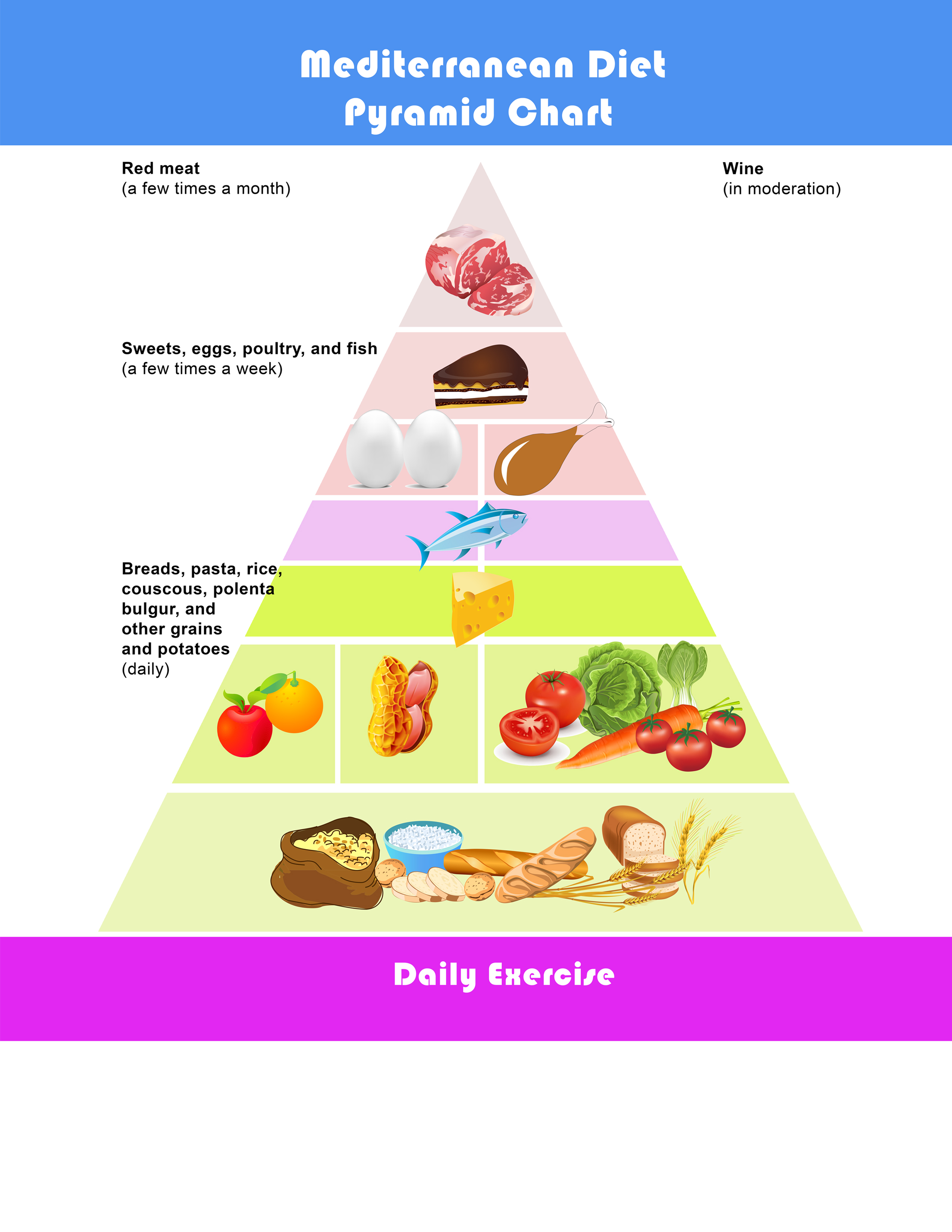
It’s important to understand that the Mediterranean diet is not a rigid plan but a flexible guideline that allows for adaptation to different cultures and personal preferences. The pyramid serves as a helpful visual aid to ensure that your diet includes a variety of nutrient-dense foods in appropriate portions.

The Mediterranean Diet Pyramid also encourages the consumption of fish, especially fatty fish like salmon, sardines, and mackerel. These fish are rich in omega-3 fatty acids, which are beneficial for heart health. Including fish in your diet a few times a week can contribute to a well-rounded and nutritious eating plan.
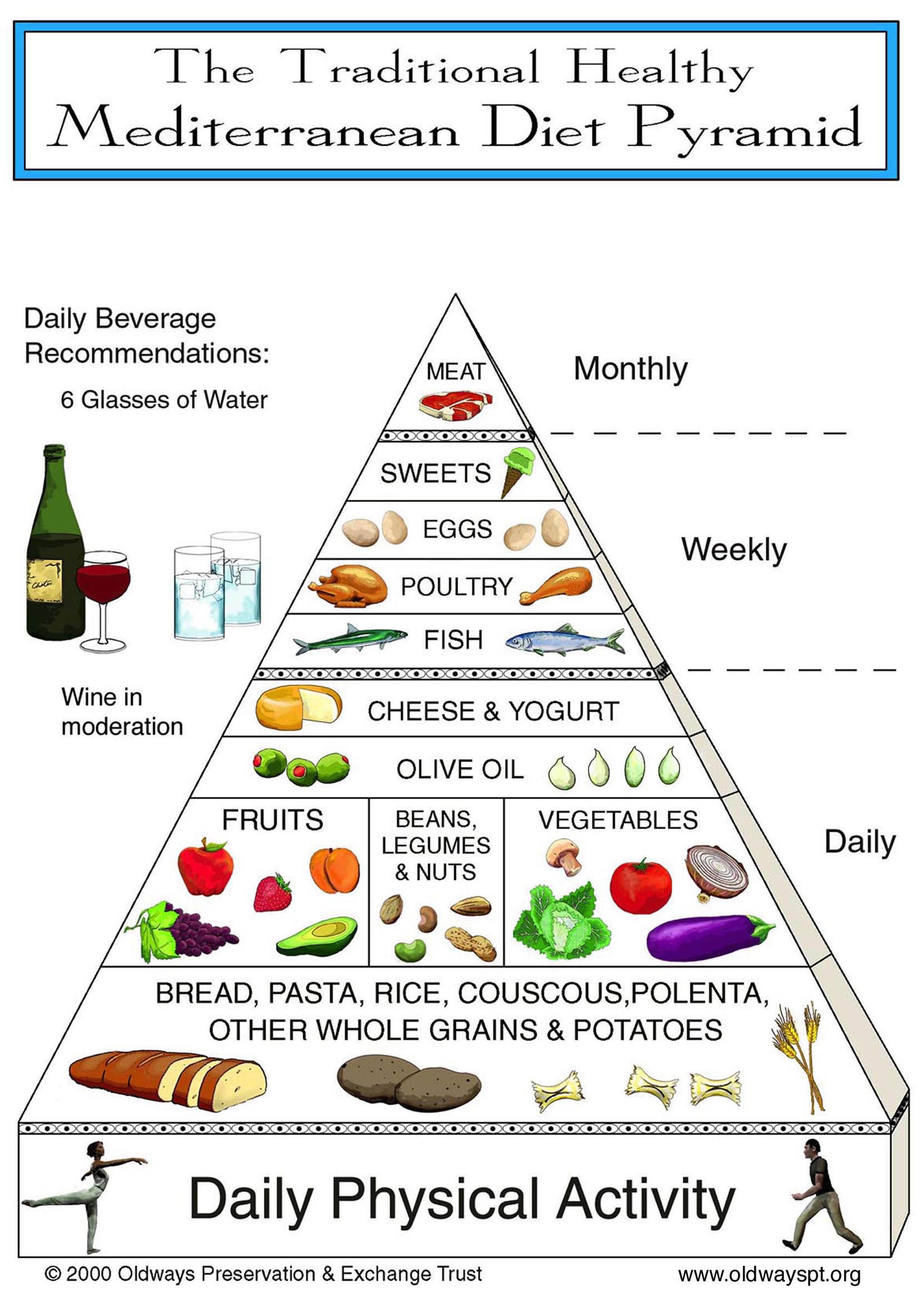
The Mediterranean Diet Pyramid originated from the Oldways Preservation and Exchange Trust, a nonprofit organization dedicated to promoting traditional dietary patterns. It has been a valuable resource for individuals and healthcare professionals alike, offering practical guidance on healthy eating habits.

The Mayo Clinic Food Pyramid also provides a visual representation of the Mediterranean diet, reinforcing its health benefits. Following this eating plan can help lower the risk of chronic diseases, such as heart disease, obesity, and type 2 diabetes.
In summary, the Mediterranean Diet Pyramid is a powerful tool that emphasizes consuming a wide range of nutrient-dense foods in balanced proportions. It promotes the use of whole grains, fruits and vegetables, healthy fats, lean proteins, and moderation in snacks and sweets. Incorporating the Mediterranean diet into your lifestyle can not only improve your overall health but also introduce you to a vibrant and delicious way of eating that can be sustained for a lifetime.